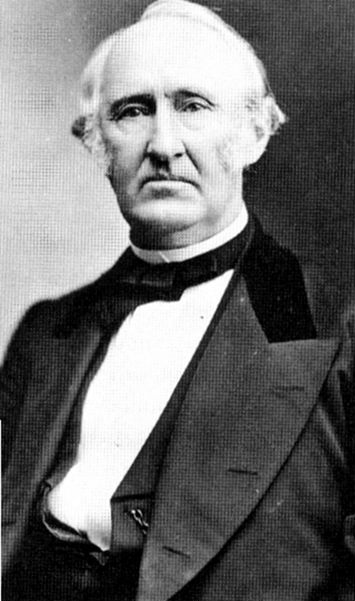Wendell Phillips (Wendell Phillips)

Abolitionist, Lawyer, and Orator. He was born in Boston, Massachusetts, where his father was a successful lawyer, politician, and philanthropist. He graduated from Harvard University in 1831 and from Harvard Law School in 1833. He was admitted to the Massachusetts state bar in 1834 and opened a law practice in Boston. In 1835, he was a witness to the attempted lynching of pro-abolitionist William Lloyd Garrison as Garrison tried to speak at the Boston Female Society meeting and a year later, he was converted to the abolitionist cause and stopped practicing law and joined the American Anti-Slavery Society, much to the chagrin of his family who tried to have him admitted to an insane asylum. His oratorical abilities were so highly regarded that he was known as “abolition’s Golden Trumpet.” He went so far as to avoid cane sugar and clothing that was made from cotton, as they were the products of Southern slave labor. In 1854, he was indicted for participating in the attempt to rescue Anthony Burns, a captured fugitive slave, from a Boston jail. In spite of his abolitionist views, he defended the right of the Southern state to secede from the union and end slavery’s grip on the US government, a view that was rejected by nationalists like Abraham Lincoln, who insisted on holding the entire Union together while gradually putting an end to slavery. After Fort Sumter was attacked, he voiced his support for the war. However, he opposed Lincoln’s reelection in 1864 because he felt that Lincoln was taking too long to end the war. When African Americans gained the right to vote under the 15th Amendment in 1870, he focused his attention to other social issues, such as women’s rights, universal suffrage, temperance, and the labor movement. He argued that the 14th Amendment also granted citizenship to Native Americans and worked with Presidents Andrew Johnson’s and Ulysses Grant’s administrations concerning the establishment of a cabinet-level post that would guarantee Native American rights and the appointment of Indian agents who would look out for their best interests. He lobbied against military involvement in the settling of Native Americans in the West. When public opinion turned against Native American advocates after George Armstrong Custer’s disastrous defeat at the Battle of Little Bighorn on the Montana plains, he continued to support the land claims of the Lakota Sioux. He died in Boston on February 2, 1884 and was originally buried at the Granary Burying Ground in Boston but his remains were moved to the Milton Cemetery in Milton, Massachusetts in 1886 and buried with his wife. The Wendell Phillips Award, established in 1896, is given annually to a member of the Tufts University senior class. In July 1915, a monument was erected to his honor in Boston Public Garden. The Wendell Phillips Prize at Harvard University is awarded to the best orator in the sophomore class. (bio by: William Bjornstad)
Born
- November, 29, 1811
- USA
Died
- February, 02, 1884
- USA
Cemetery
- Granary Burying Ground
- Massachusetts
- USA

